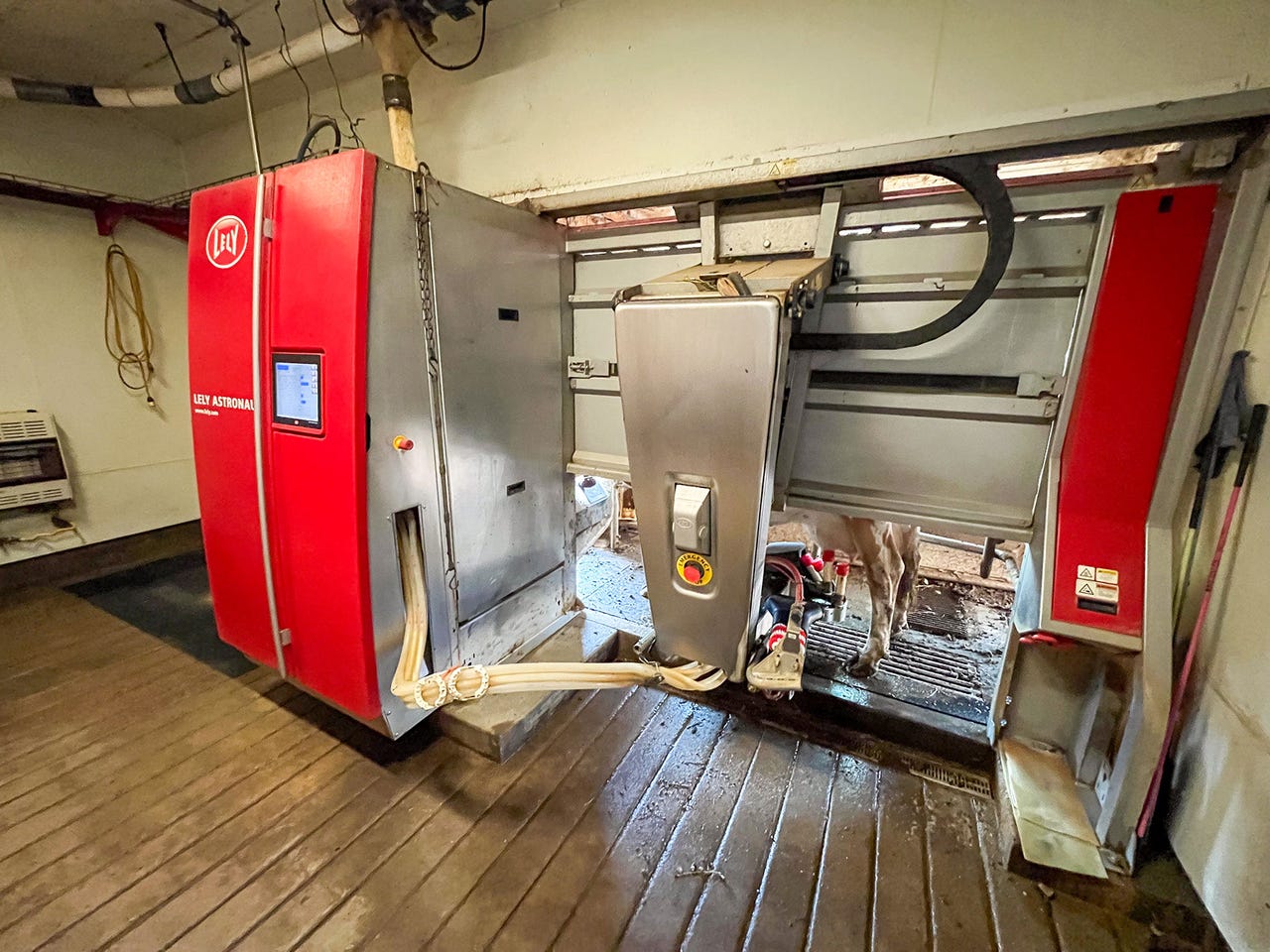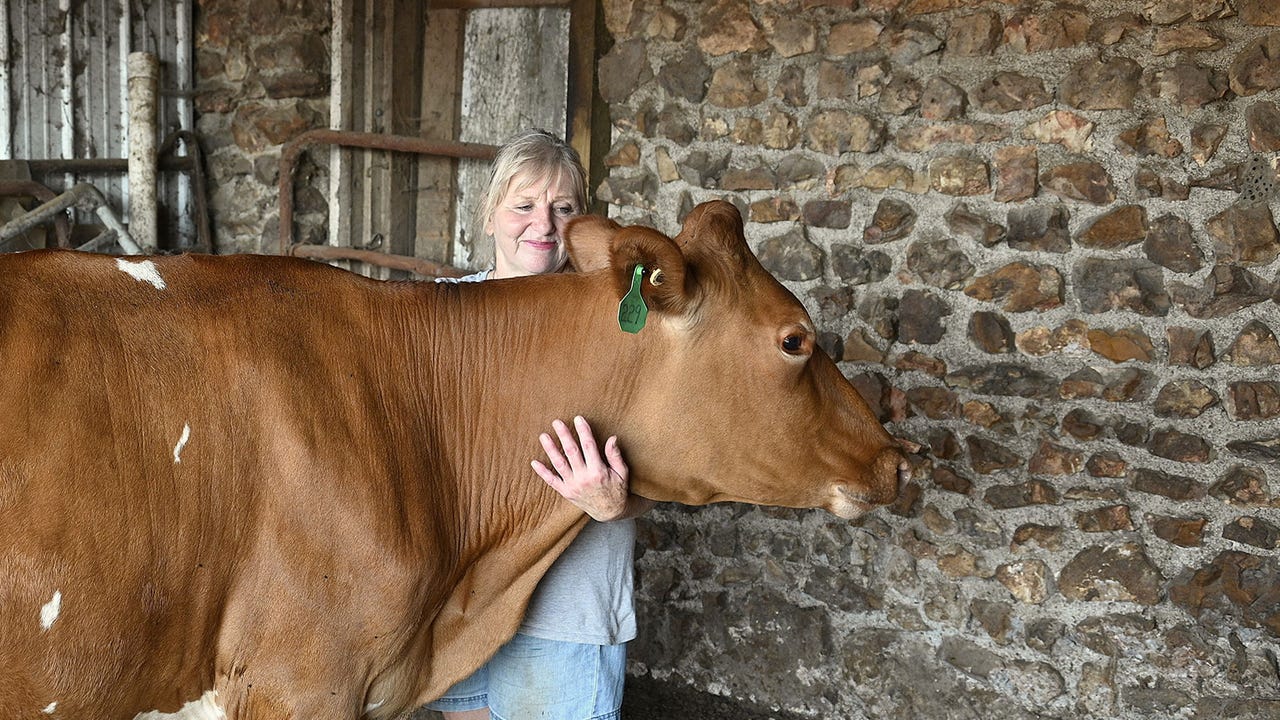Marlane Willams grew up on a family farm near Renick, Mo., just north of Columbia. There, her father managed row crops while her mom handled the dairy operations.
“I never quit wanting to have a dairy farm on my own,” she says. “Ever since a young age, I've always enjoyed dairy farming.”
Williams’ journey to achieve that childhood dream is one of resilience and gratitude, and includes the help of a robot.
Life away from the farm
Early on, Williams worked for a company that had a service center in Moberly, Mo., but that center was going to close. That left her — and other employees — with two options: moving to Kansas City or Little Rock, Ark.
“I didn’t have a desire to go to either location, so I ended up moving out of state,” she explains. “My parents had bought a winter home, so I lived there for a while after my dad passed away.”
At the same time, she found a weekend job as a relief milker and continued her college education as a nontraditional student. Soon, an opportunity arose to come back to Missouri and be closer to family.
Over the years, Williams held several jobs while trying to be a dairy farmer. Some of those jobs included a finance company where management saw how well she was doing in the collections department, and they decided to move her to repossessing cars.
“I was young and dumb at that time, and so it didn't bother me,” she says. “But as time went on, there were areas where I was afraid to even get out of the car.”
After talking to her boss about safety concerns, Williams made a switch to health care. She found an opportunity as a receptionist and is now the executive director of an assisted living facility in Carthage.
“I've always worked another job because I needed that financial security,” she says. “There have been times when the farm didn't pay for itself. I needed that paycheck to simply meet my feed bill, or foot things the milk check didn't even cover.”
Williams has owned a dairy farm in southwest Missouri since 2002 and says balancing both is tricky, but she feels blessed to have achieved her dream.
“There have been times that when I get home, I would think, ‘You know, oh my gosh, it'd be nice to be a city girl.’ I could just go inside where it's warm and not have to tend to all of this,” Williams says. “At the same time, I wouldn't give it up. There's a responsibility at both locations, and you just do what you need to do.”

Robot makes it work
Williams’ property started out at 40 acres, which worked fine when she had only eight dairy cows. Now, she’s milking about 150 in a barn that wasn’t initially designed for milking.
She took her savings and put it toward the old barn, which was built in 1936, and converted it to a flat barn to milk the cows.
Over the years, Williams purchased more acreage and other resources to help her as a single female dairy farmer.
“I got part-time hired help on the farm. I was driving to work one morning and kept wanting to doze off behind the wheel, and I thought, ‘This is crazy. This is not worth it. I'm going to kill myself over this,’” Williams says. “At the same time, I didn't feel like I could quit working the other job because I needed that security.”
She hired an older gentleman to milk the cows, but it didn’t last long. Williams reached the point of either getting rid of the cows, quitting her job or buying a robot. So, she called a regional dairy supplier for help.
Today, a Lely Astronaut milking robot helps milk the cows.
“It has freed me up from having to have someone milk for me on a regular basis,” Williams says. “They are pricey, but if you can't find dependable labor, they pay for themselves in a hurry.”

Happy life on the farm
“I was happy as a clam,” Williams says, talking about when she first got the farm. And while life has taken her down many roads, she still achieved her dream, her way.
“I don't have kids. It never fit into my lifestyle,” she adds. “I was always just busy working, and I attribute a lot of that to being a farm kid.”
One of her favorite parts of the farm is the collection of animals — not only cows, but also cats and dogs that have called her property home over the years.
“I am a sucker for animals; I love animals,” Williams says. “ I've had several strays that either were dumped on me, or they've been dumped nearby and end up coming to me, and I take them in. I can only hope that if I'm needing a home that somebody will take me in and give me a home and be good to me.”